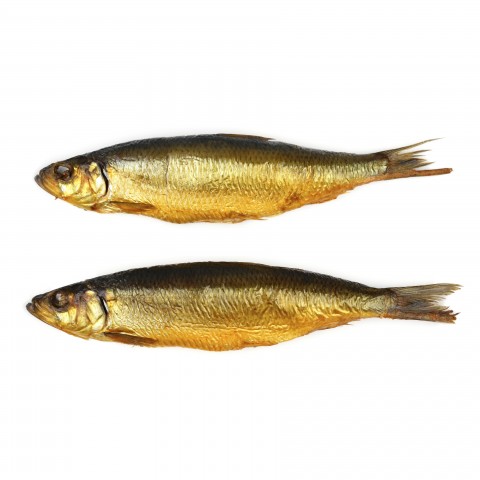
When learning a new language, you’re going to come across some surprises.
Ever heard of false friends?
It’s a linguistic concept that describes similar-sounding or similar-looking words in different languages that do not have the same meaning.
It’s most common among languages that belong to the same linguistic group, such as between North Germanic languages (Swedish, Danish, Norwegian, Icelandic, and Faroese) and West Germanic languages (English, German, and Dutch).
For example, eventuellt in Swedish does not mean “eventually” as you may suppose. It actually translates to “possibly” or “potentially” in English.
And then there are untranslatable Swedish words. These are words that are used in one language (Swedish) but cannot be translated to another.
This is usually the case with words that are attributed to cultural, geographical, and historic particularities of a certain language or country.
One of the famous traditions unique to Sweden is eating fermented herring, and Swedes had no choice but to create some untranslatable vocabulary unique to this tradition, which takes us to the first item on our list of unique words in Swedish…
Start with a bonus, and download the Must-Know Beginner Vocabulary PDF for FREE! (Logged-In Member Only)
 Table of Contents
Table of Contents
- Surströmmingspremiär
- Badkruka
- Dygn
- Harkla
- Hoppilandkalle
- Blåsväder
- Panta
- Festsnusa
- Vaska
- Planka
- Conclusion
1. Surströmmingspremiär

Literal Translation:
Meaning:
This unique Swedish word refers to the first day of the year when you can eat fermented herring (surströmming).
Example Situation:
It refers to the Swedish tradition of eating fermented Baltic Sea herring on the first day when that year’s cans are presented on stores’ shelves. The premiere falls on the third Thursday in August every year. It’s given such significance due to the extravagant smelliness of this delicacy.
Here’s an example sentence for you:
I morgon är det surströmmingspremiär, är du redo?
Tomorrow is surströmmingspremiär, are you ready?
Additional Notes:
Traditionally, because the herring is way too smelly to be eaten separately, Swedes like to put it in a sandwich with other ingredients. The sour herring during the surströmmingspremiär is often folded in a thin flatbread sandwich after buttering the bread; chopped onions and mandelpotatis (almond potatoes) are usually folded inside as well. Hint: This is not a universally enjoyed experience.
- ➜ Learn the most popular Swedish foods by studying our relevant vocabulary list!
2. Badkruka

Literal Translation:
Bathing pot
Meaning:
This is a term used to refer to someone who refuses to swim (in other words, a scaredy-cat).
Example Situation:
Someone may call you this if you refuse to swim with friends at a lake because the water feels cold:
Det är dags för dig att simma, badkruka.
It’s time for you to swim, badkruka.
Additional Notes:
This expression is considered more friendly than rude, so don’t be offended if someone happens to use it. You can also feel free to use it around your friends when you spot a badkruka!
- ➜ To add even more flair to your spoken Swedish, be sure to check out these Essential Idioms That Will Make You Sound Like a Native Speaker!
3. Dygn
Literal Translation:
Day and night
Meaning:
Dygn refers to a full 24-hour day.
Example Situation:
You could use this phrase to explain a situation where you had to quarantine at home for 14 dygn due to a virus infection:
Jag satt fast hemma i 14 dygn.
I was stuck at home for 14 dygn.
Additional Notes:
If you ever want to tell a story that involves several days (and nights), use dygn to sound more like a native and impress your Swedish buddies.
4. Harkla

Meaning:
Throat-clearing sound
Example Situation:
You could use this phrase after hearing someone clear their throat while giving a speech. For example:
Hans harklande är irriterande.
His harklande is annoying.
Additional Notes:
It happens to the best of us: that brief coughing sound we make to clear our throat while speaking to others (and maybe while we think of what to say next). Swedes have gone the distance and invented a separate word to describe that little instance.
5. Hoppilandkalle

Literal Translation:
Jump-ashore-kalle
Meaning:
This word refers to the person (usually a sailor) who jumps ashore to moor a boat.
Example Situation:
Imagine that a sailor jumped out of a ship and broke his legs. You might say:
Hoppilandkalle bröt båda benen.
Jump-ashore-kalle broke both legs.
Additional Notes:
Kalle in Hoppilandkalle is the equivalent of Jack in “jack-of-all-trades.” Interestingly, there’s even a news story with the word hoppilandkalle mentioned in the title (“Hoppilandkalle bröt båda benen“). The story describes how a sailor broke both legs landing on a pier that was 2.5 meters down while trying to dock a cargo ship.
6. Blåsväder

Literal Translation:
Stormy weather
Meaning:
Trouble
Example Situation:
You could use this phrase if you have an exam coming up that you haven’t prepared for, or if your company is having a crisis:
Vårt företag är i blåsväder på grund av finanskrisen.
Our company is in blåsväder due to the financial crisis.
Additional Notes:
Although this expression may sound like something that would only be used colloquially, you can actually find it in news articles or hear it on TV, so feel free to use it whenever you see fit.
7. Panta
Literal Translation:
To “pant”
Meaning:
To recycle plastic bottles with the word “pant” written on them
Example Situation:
This word would probably come up if you were collecting bottles from friends to return to the recycling machine at the supermarket in exchange for a few small coins:
Han vill ta mina tomma flaskor och panta dem.
He wants to take my empty bottles and “panta” them.
Additional Notes:
If you look up the word “pant” in dictionaries, you’ll find out that it also means “to lend,” which is the more translatable meaning of the word. So this word is really only partially untranslatable.
8. Festsnusa
Literal Translation:
Party dip
Meaning:
This word refers to moist dip users at parties.
Example Situation:
Imagine you’re using moist dip at a party and are about to run out:
Jag har slut på snus. Kan någon av er festsnusare ge mig lite av ert?
I’m running out of dip. Can any of you festsnusare give me some of yours?
Additional Notes:
Fest is the Swedish word for “party.” Dip is a tobacco product that’s uniquely popular in Sweden, and to a lesser extent in the other Nordic countries. Put them together and turn it into an adjective, and you have a “party dipper” (festsnusare).
The tobacco product does exist in some areas where Swedish immigrants went in the nineteenth century, and it’s from there we get the American English term dip. As people try to cut down on all tobacco products, there are now plenty of people who only use snus (dip) during parties where clean living is not always the first priority.
9. Vaska
Literal Translation:
To sink
Meaning:
To order two bottles of champagne and empty one down the sink
Example Situation:
Imagine you’re at a club where you want to impress other people. You might say:
Ska vi vaska idag eller inte?
Are we going to sink today or not?
Additional Notes:
The fun part about this untranslatable Swedish word is the story behind it. Popular bars in Swedish cities Visby and Båstad stopped allowing customers to spray champagne in 2007 and 2010. As a reaction to that, people started to Vaska the champagne instead of spraying it.
10. Planka
Literal Translation:
To plank
Meaning:
To sneak through the metro turnstiles behind someone else (like a plank of wood)
Example Situation:
Imagine you have to sneak through the turnstiles to hop on the next train because you’ve forgotten your wallet at home. You might tell your friend:
Jag har ingen biljett. Jag tror att jag måste planka.
I do not have a ticket. I think I’ll need to plank.
Additional Notes:
With the rising access to public transportation all around Sweden, there are some problems building up. One of the more recently prominent ones is “planking.” It’s popular among those who want to avoid paying for tickets, or those who just don’t have time to get one and need to catch that incoming train fast. It’s also more generally used to describe sneaking inside anywhere without a ticket.
11. Conclusion
And there you have it! You now know the most fun untranslatable Swedish words as well as many little cultural and social traits/traditions prominent in Sweden. Which of these words was your favorite, and why?
While it’s fun to learn these cool Swedish words and their meanings, formulating the correct sentences to use them correctly could be challenging for many learners.
Want to take that step further and learn how to use more untranslatable words (and more)?
Enter SwedishPod101.
SwedishPod101 is the go-to online learning program for learners looking for an efficient tool that helps them retain the most vocabulary and information in the least amount of time.
The diversity of our content (audio, video, and text) makes it possible for you to take in new information in different circumstances. Whether you’re commuting to work, sitting on your couch after school, or anything in between, you can have access to tools and lessons that will help you expand your Swedish-language knowledge.
In fact, you can even request your own personalized program based on your needs and time obligations. The platform is accessible via your desktop or the mobile app on iPhone, Android, or Amazon Fire.
All of this and more comes with a free sign-up. It’s a fast process and no credit card is required to join.
Sign up now and experience it all for yourself.
Start with a bonus, and download the Must-Know Beginner Vocabulary PDF for FREE! (Logged-In Member Only)










